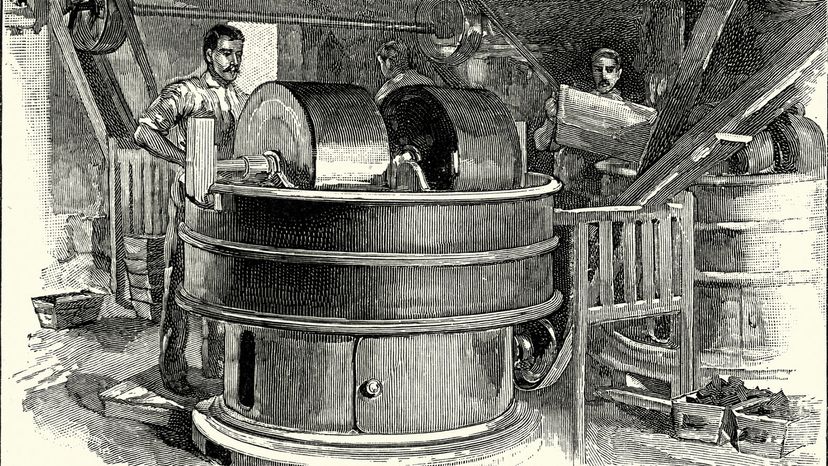Elixir of the Gods: The History of Chocolate

Nobody knows when the first person looked at the cacao tree and decided to eat its seeds. The earliest record of chocolate comes from Mesoamerica, a region that stretches from central Mexico south through Costa Rica. The Mayans were drinking it by about 600 C.E., with the Aztecs joining in on the fun a few hundred years later (when they conquered the Mayan empire). Both cultures considered chocolate sacred and included it in ceremonies and offerings to their gods. The Aztecs believed that it actually came from a god; specifically Quetzalcoatl, and that drinking cacao beverages helped mere mortals share in some of the god's wisdom [sources: International Cocoa Organization; Robles].
The Aztecs called chocolate xocoatl (thought to mean "bitter water") and often added spices like chili and vanilla for flavoring before mixing it with water into a frothy beverage. Kings and other royals sucked it down because they believed chocolate could fill them with power and good health. Chocolate wasn't just a food, though; the beans were one of the main forms of currency of the day [source: Robles] An Aztec document from the 1500s states that you could buy a turkey for 100 cacao beans and a tamale for one [source: Fiegl]. Definitely more valuable as currency than food!
Advertisement
Europeans got their first taste of chocolate when Spanish explorer Hernando Cortes showed up at the court of Aztec ruler Montezuma II in 1519 [source: Fiegl]. The great ruler supposedly downed 50 cups of chocolate a day, although the legitimacy of that claim has since been debunked [source: Garthwaite].
Adding sugar or honey to the bitter brew soon became the norm for Europeans when cacao started getting shipped back home in 1585. Guess what? They loved the drink once it was sweetened, and sadly for the Aztecs, that soon meant enslaving them to keep up with demand overseas. Wealthy Europeans paid dearly for the import all the way from Central America, but eventually, prices fell as more countries planted cacao trees in their own territories around the Equator.
Remember, this was still a drink — and a gritty, unrefined one at that — but a series of inventions during the Industrial Revolution changed chocolate forever. In 1828, a Dutch entrepreneur named Coenraad Johannes van Houten learned how to press the cacao beans to separate dry cocoa from the cocoa butter. He also treated the cocoa with alkali, making it smoother and less bitter [source: Cornell University]. About 20 years later, this Dutch cocoa was taken by Joseph Fry, an Englishman, and mixed with sugar and additional cocoa butter and pressed into a mold to make the first solid chocolate bar [source: Candy History].
Rodolphe Lindt invented conching in 1879 [source: Lindt]. This process consistently created a smooth-textured bar of chocolate and made chocolate even more affordable to mass-produce. By the early 1900s, people like Henri Nestle, Milton Hershey and other big names in chocolate were churning out tons of chocolate candy.
Our beloved confection starts out very humbly as a seed (which we call a "bean") growing in pods on a tree. Looking at it, you'd wonder how anybody would think of turning it into food. Let's look at the complicated process.